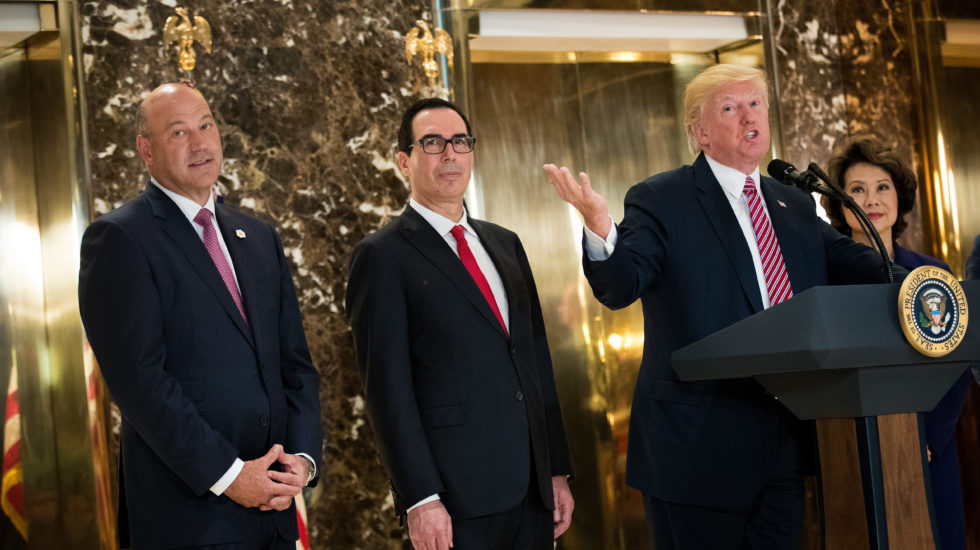Many people say the number one reason they voted for Donald Trump is fiscal. But if they thought a millionaire would get the business side of the country under control they may have gambled on the wrong person. It turns out the deficit has been rising since Trump took office and analysts say the upward trend will continue for the foreseeable future. USA Today recently wrote:
The national debt is $21 trillion and counting.
The federal deficit soared last year to $779 billion and is projected to approach $1 trillion in 2019.
For most Americans, it’s difficult to comprehend a dollar figure that has that many digits. ($1 trillion, when written out in long form, is $1,000,000,000,000. Yes, that’s 12 zeroes.) The numbers are so huge that they almost seem surreal.
But the impact of the rising national debt and federal deficit is very real, even for average Americans, financial experts warn.
— George Conway (@gtconway3d) November 26, 2018
In a new article, the Washington Post spoke with 10 current and former officials in the White House and Congress titled, “Trump demands action to reduce deficit, pushes new deficit spending.” The report says:
Three former senior administration officials said the deficit issue was rarely brought up in Trump’s presence because he had no interest in discussing it.
When former National Economic Council director Gary Cohn’s staffers prepared a presentation for Trump about deficits, Cohn told them no. It wouldn’t be necessary, he said, because the president did not care about deficits, according to current and former officials.
Trump also repeatedly told Cohn to print more money, according to three White House officials familiar with his comments.
“He’d just say, run the presses, run the presses,” one former senior administration official said, describing the president’s Oval Office orders. “Sometimes it seemed like he was joking, and sometimes it didn’t.”
in other words, this WashPost story says Trump’s budget policy is gibberish https://t.co/FUaapkJBz5
— John Harwood (@JohnJHarwood) November 25, 2018
An editorial writer in the Tampa Bay Times writes:
Two congressional forecasts estimate spending will outweigh revenue by $1 trillion or more annually in the coming years – a level of federal debt the nonpartisan Congressional Budget Office says is on track to becoming the highest in the nation’s history.
The growing deficit undermines the Republican narrative that the GOP is more fiscally responsible. The twin pressures of tax cuts and increased spending are not only a budgetary problem; they hasten the day and make it harder for Congress and the White House to balance the budget through either spending cuts or tax increases – or a combination of the two.
It is unusual for budget deficits to expand the way they have during the Trump administration because they typically contract during periods of economic growth. https://t.co/z5T7O0wTQH
— Karen Tumulty (@ktumulty) November 25, 2018
For those who thought Trump’s fortune equaled financial wisdom, they may not have taken into account how many times he filed for bankruptcy. Something he can’t do this time around.
Trump introduced a massive tax cut that created massive federal deficits. Also pushes for new spending that creates deficits. Now presses White House staff to find ways to *reduce* the deficit. A reminder: He was a serial bankruptcy artist as a businessman https://t.co/CHaYGimpXZ
— Tim O’Brien (@TimOBrien) November 25, 2018



